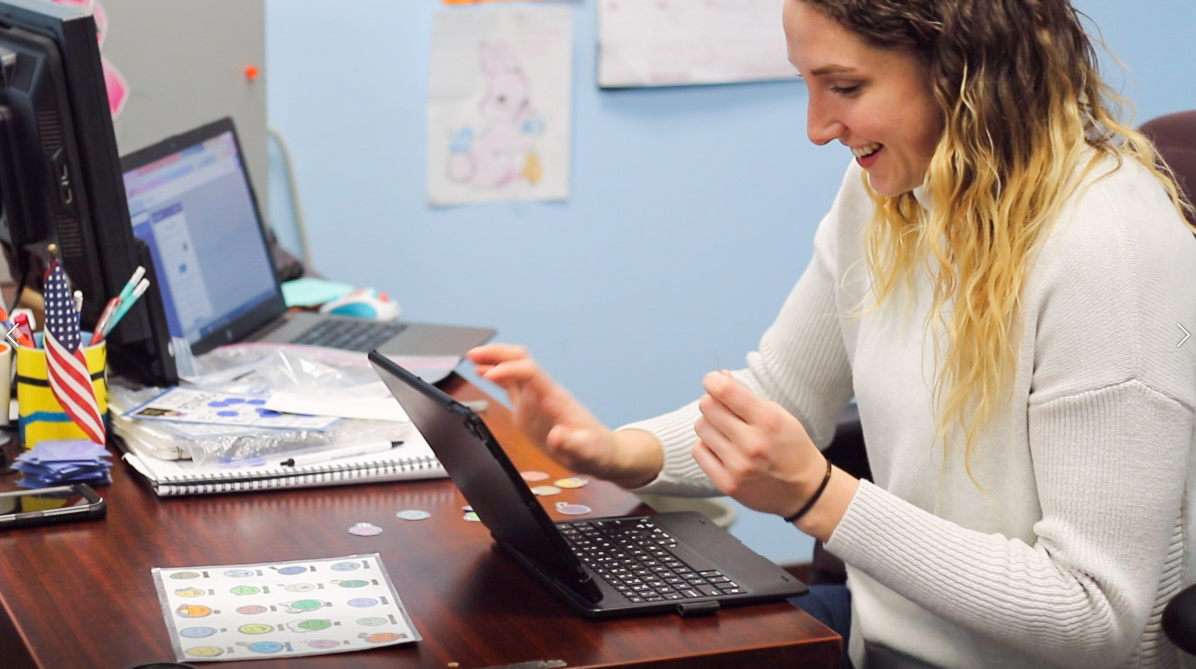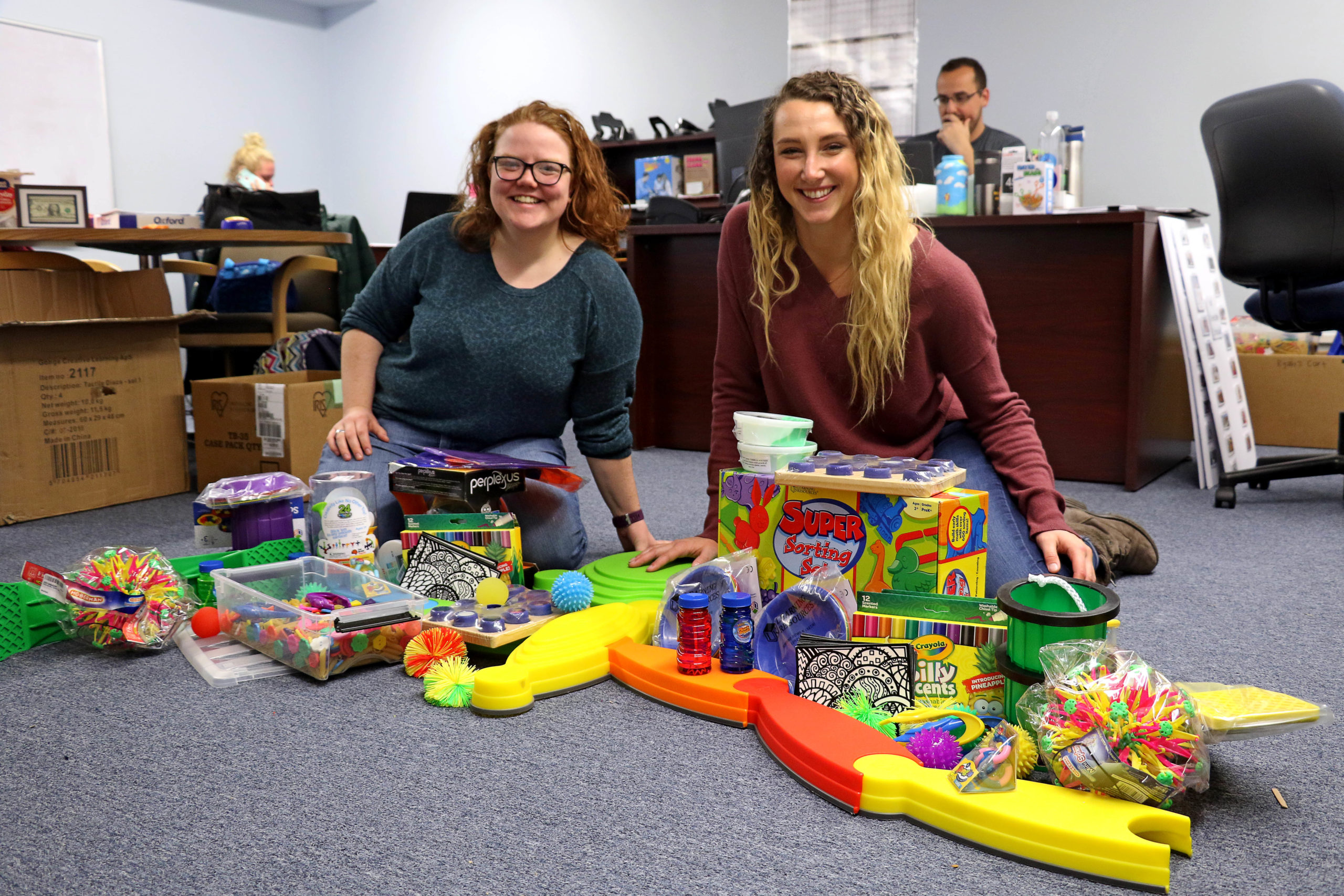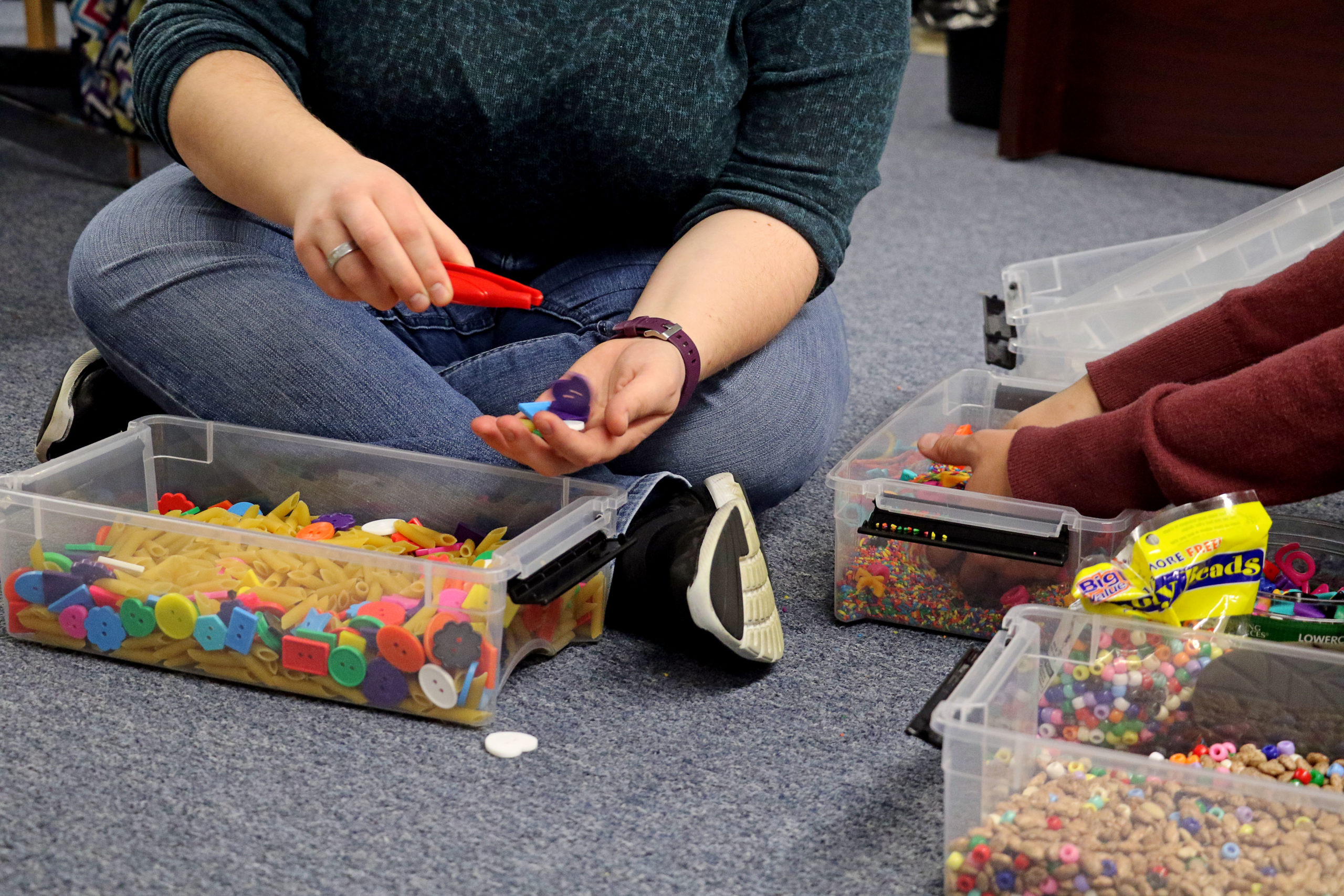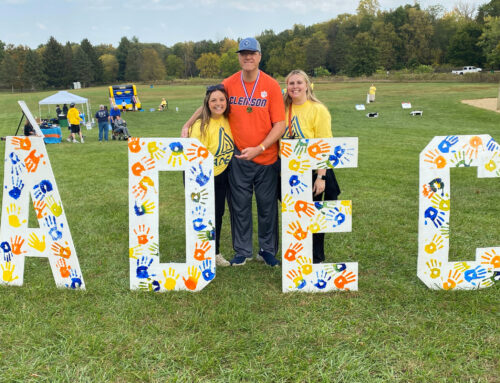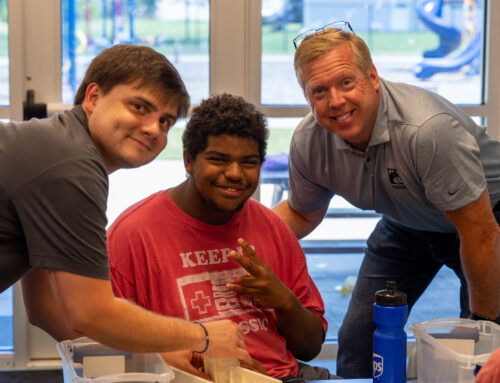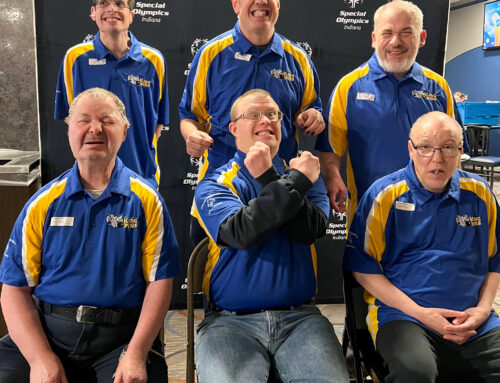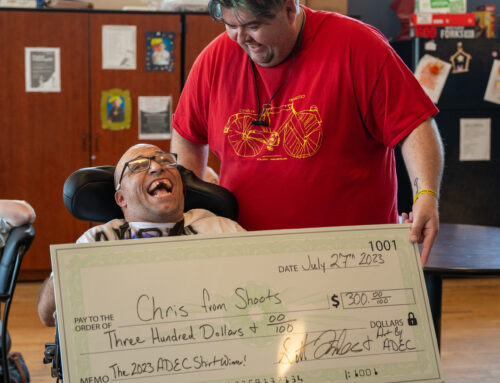When the grant application was sent to the Monogram Loves Kids Foundation, no one at ADEC knew just how good the timing was.
As the components for the sensory kits to augment ADEC’s sensory stations arrived in late fall, recreational therapists Hallie Enderle and Alysha McKenzie zestfully tore through the boxes, eager to put the implements to work. For about four months, the duo used the kits daily at ADEC’s day centers helping particularly children with intellectual and developmental disabilities improve their sensory and motor skills.
“Designing the sensory room at Bristol and these boxes pushed me to do a lot of independent research on sensory systems,” said Enderle. “I was able to really get in depth with the big three when it comes to sensory deficit – proprioceptive, vestibular and tactile. So when we talk about sensory processing disorder, we’re talking about those big three. Through the use and creation of these kits, you’re planning these interventions creating these interventions to meet these big three sensory deficit areas and in, turn, you learn a lot about them.”
As the clients learned, so too did ADEC’s staff. Enderle and McKenzie developed multiple techniques which utilized the equipment creatively and built an in-person rapport with some of ADEC’s youngest clients in particular. The value of that time and the worth of the very simple items in the kits increased exponentially in mid-March when the novel coronavirus pandemic and its associated social distancing guidelines forced ADEC to suspend its day programs and therapies.
The world came to a sobering halt. So too did usage of the sensory stations. Thankfully for many though, the halt would be but a brief pause as just weeks later, the federal government and state of Indiana relaxed restrictions on usages of telehealth allowing for its usage in many of the therapeutic services offered by ADEC.
Telehealth meant that the clients would be in their homes and not ADEC’s day center sensory stations, but the connection was restored and therapists had enough prior time in person to know which components could be implemented remotely. Where the ADEC staff can’t physically cover in person, familiarity with the kits’ components allows the therapists to recruit unofficial deputies – mom and dad.
“What is transitioning really well for the telehealth is there’s a good portion of my session that is going into working with parents about what else they could be doing for their child,” Enderle said. “A lot of them are working 40 hours a week with a child at home who has an IDD. Some of the things that we purchased for these task bins that we use are for counting, sorting by color and I’m able to use those in my telehealth sessions. What’s great about that is it’s got a lot of household items in it like buttons and noodles. These are not fancy things. These are things that parents can also be implementing on their own. We’re able to help them make that transition a little bit smoother.”
Enderle and McKenzie, along with other ADEC therapists, spread out over side rooms in ADEC’s Bristol Day Center. The core of the building is silent rather than its typical bustling hub of activity, but the sensory kits are being put to good use behind the closed doors on the perimeter. With laptops open, it’s business as usual – or as close to it as possible under the circumstances – with Zoom meetings all around utilizing the components of the sensory kits provided by the Monogram Loves Kids Foundation.
Some of the more specialized equipment can’t be used. Special compression gloves and therapy putty which help with dexterity remain, but the therapy team does the best with what they can over video and what comparable items might be found in a client’s home.
“Something for example I did last week with the kids, I had the colored buttons on the table out in front of me,” Enderle describes. “I would ask them to tell me how many blue buttons I had or how many yellow buttons I had. Then, I would flash the card for that number, and they would either tell me whether that was the right number or the wrong number. So if they said I had two yellow buttons, but I showed a card that said ‘three,’ they could tell me ‘no, that’s not the same.’ So that was one way I was using those buttons. Also pattern recreation is still possible remotely. If I have a picture of a pattern I can ask them to tell me what the next one is or the location (it’s next to the green one or it’s below the blue one).
“It helps us clinicians see behaviors and then come up with the why. When I have clients that are slamming the marker into the paper or using too much pressure with scissors, you put the gloves on them, and that gives them the awareness that they were missing in their hands. Now they can execute the path a little bit easier.
“And we do see a difference. It sounds like hocus pocus really when I think about it. But we do see a difference with those type of interventions, or just playing with the putty. We’re using these interventions with information we sought ourselves that helped us create these tools.”
Because telehealth’s physical restrictions limit the quantity of therapy sessions Enderle performs in a week, like much of #TeamADEC, she has been working extra shifts in residential homes as a way to still contribute to the agency.
Figuratively juggling tasks like this is nothing new to Enderle who graduated from Central Michigan University with a therapeutic recreation and art double major, plus a psychology minor, while also playing volleyball for the Chippewas.
Literally juggling is not one of the motor skills the sensory kits are designed to teach ADEC’s clients. However, thanks to the kits and pandemic-related telehealth expansion, ADEC can still keep its therapy ball circulating in the air.

